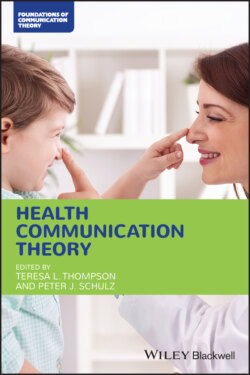Читать книгу Health Communication Theory - Группа авторов - Страница 16
What is Theory? What is Health Communication Theory?
ОглавлениеThe term “theory” is used rather loosely in ordinary conversation (“I have a theory about why my brother is so messed up”) but has a more precise meaning in scholarship. Once again, many different definitions are offered of theory. Put fairly simply, a theory is an attempt to explain a phenomenon or set of phenomena in a testable manner. It provides guidance for research and can serve as a lens or a map. It is a supposition that is based on past research. This makes it an educated guess. It should not be tautological or based on circular reasoning. The theory should be independent of the phenomenon to be explained. Theories make predictions which are then testable.
Theory plays a different role in qualitative/interpretive research than it does in positivist/quantitative research. Whereas good quantitative research is typically grounded in and tests theory, qualitative research is more likely to generate theory. The goal of interpretive work is to reform society and generate understanding more than to test predictions and hypotheses. Jill Yamasaki (Chapter 3 in this volume) articulates this difference in more detail and makes clearer the role of theory in interpretive work.
Babrow and Mattson (2011) offered a useful definition of health communication theory in the 2nd edition of the Routledge Handbook of Health Communication. They define health communication theory “as consciously elaborated, justified, and uncertain understanding developed for the purpose of influencing practice related to health and illness” (p. 19). This will be our working definition of health communication theory in this volume.
